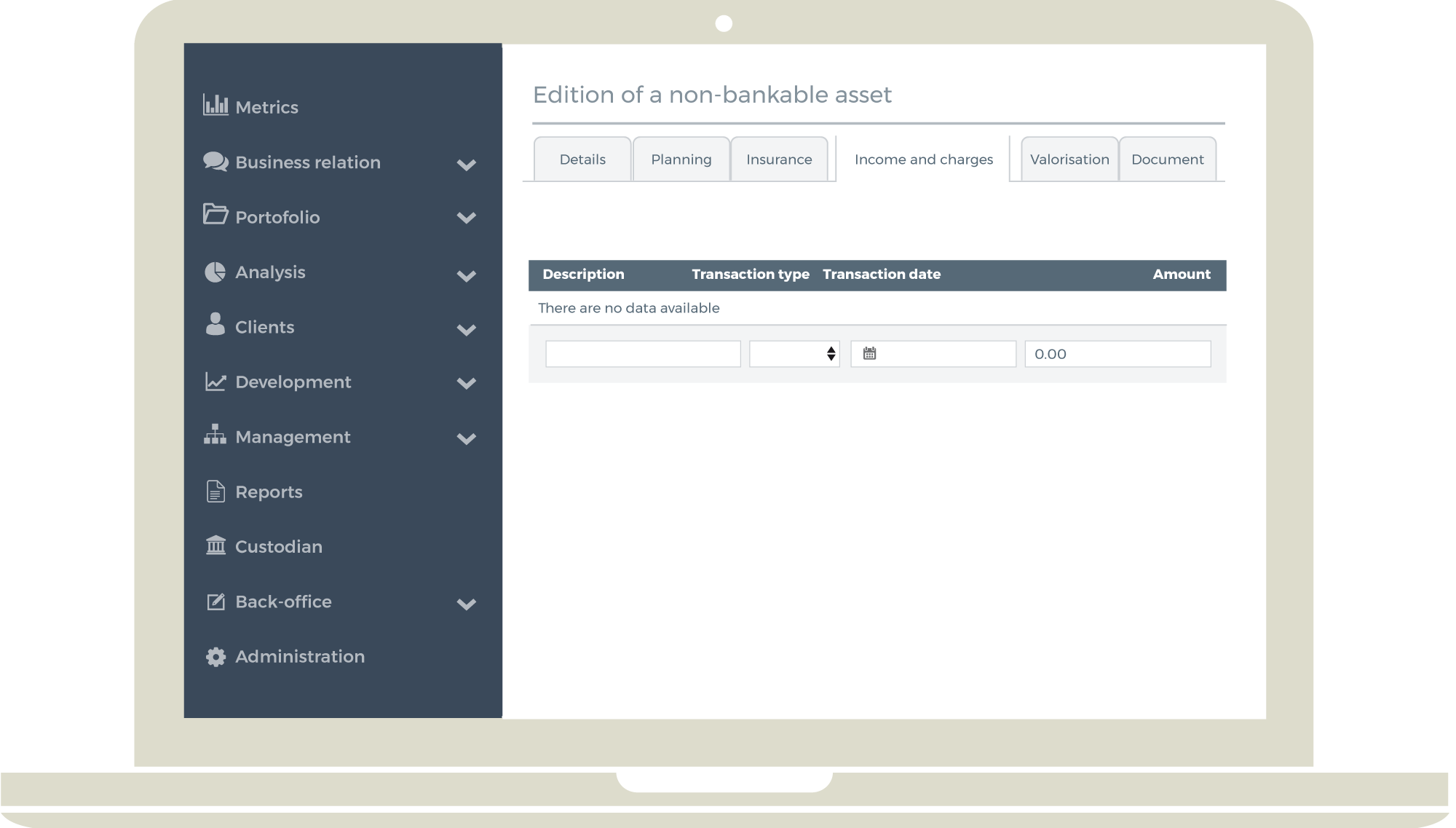
Efficience’s Tutorials
In this section you will find several tips to get you started with Efficience.

Tutorial
Create the business relationship
The business relationship is considered as a workbook in the Efficience software. This is where the client(s) with their portfolio(s) as well as all documentation related to the bank and the client will be listed.
Tutorial
Create a new customer


Tutorial
Create the custodian bank
This tutorial is required to add a new bank to the Efficience software. The portfolio related bank must be present before a new portfolio is created.
Tutorial
Create portfolios


Tutorial
Attach documents
Tutorial
Create a non-bankable asset


Tutorial
Activity report
Tutorial
Billing
This tutorial is necessary for billing. It is necessary to check that certain data are present in the software to start a billing.


Tutorial
Create a task
Tutorial
Linking a client to a portfolio
This tutorial is necessary when you want to add a client to a portfolio as a Holder, Economic Owner, Viewing Right, Procured.


Tutorial
Manage Retrocessions
This tutorial is necessary to manage retrocessions on Custodian Banks, Investment Funds and Structured Products. It also helps to dispatch retrocessions to all related portfolios and figure out their impact on the portfolio performance.
Tutorial
Using the DowJones function
Efficience works with several partners who offer you the possibility to add new features to the program. DowJones is one of them. With the DowJones Option, you can do some researches about your clients and check if they are risky clients (if they are PEP, if they have legal troubles, etc.). Here is the tutorial to teach you how to use it through Efficience.

Tutorial
Create a Life Insurance
This tutorial teaches you how to create a life insurance in Efficience.


Tutorial
Create a model portfolio
This tutorial teaches you how to create a model portfolio, how to link it to a portfolio and finally how to use it in an investment simulation.
Tutorial
Create Investment Simulations
This tutorial teaches you how to create investment simulations based on an existing portfolio, for prospect or consolidated investment simulation based on the consolidated holdings of a client.

